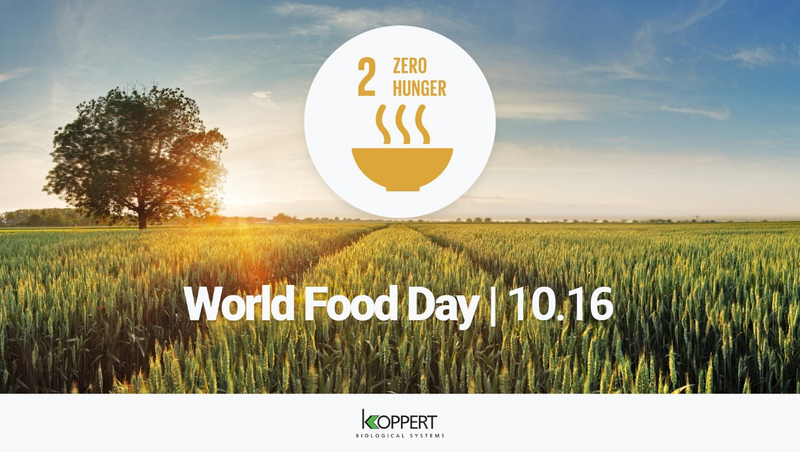
Under the cloud of a global pandemic and changing climate, crop resilience has become a vital factor in our struggle to produce food with shrinking resources. The ever-present question we face is: How to achieve food security for an increasing world population while changing food production systems to ease the pressure on our natural environment and other finite resources?
In the search for answers, Koppert Biological Systems, a world leader when it comes to innovative solutions for agriculture and horticulture, has invested much of its knowledge and research in finding microbial solutions for current and future food production issues such as plant health and resilience; resistance against drought, diseases, and pathogens.
"Having initially concentrated on entomological solutions to manage pests in horticulture and agriculture, Koppert has always been aware that it needed to consider the whole plant, both above and below ground, when it comes to plant health. Today, an increasing amount of our resources is invested in microbial solutions," says Corporate Marketing Director at Koppert, Peter Maes. "We firmly believe that plant health based on biological mindset, both microbials, and macrobials, can really contribute to solving problems which we are facing in agriculture and horticulture these days."
"There would be no life on earth without bacteria, fungi and viruses – they are vital to improving agricultural productivity," says Ed Moerman, Agronomic Development expert at Koppert. "We have a number of microbial solutions for diseases such as Pythium, Fusarium and Rhizoctonia, and pests like whitefly. Trianum is a product based on the fungus Trichoderma harzianum T22 that not only protects plants against soil-borne diseases, but also promotes plant growth. It enables plants to cope with abiotic stresses, and produce good yield and quality in resource poor growing conditions."
Changing consumer behavior
There is a growing awareness that agricultural systems need to change to ensure improved food security, biodiversity and protect the environment. At the same time the current global pandemic has accelerated consumer pressure for sustainable food production and safe food.
The empty supermarket shelves during lockdown in many countries prompted many consumers to take a sharp look at industrialized food production systems with the attention now firmly focused on their health. People were reminded of the role food plays in their resistance to disease. Within days of the outbreak of COVID-19, buying patterns started changing with more people than ever buying their food and other products online, with many direct sales going to local farmers, food box schemes and open-air markets.
Homebound due to the COVID-19 measures, consumers increasingly ate at home. There has seldom been more interest in the provenance of our food.
"At Koppert, we expect consumer awareness and the pressure they exert on food production to increase. People are becoming increasingly critical about the use of chemical agents in farming methods and this is why we are stepping up the production of microbial solutions worldwide," Peter Maes asserts. "We are convinced that this is the way to improve future food production where microbial solutions can contribute to soil health and plant stress resilience, a new world to be explored."
"Microbes are essential for the overall functioning and wellbeing of the ecosystem as a whole. Much research still needs to be done. We at Koppert are aware of the immense potential that the invisible world of bacteria, fungi and viruses can offer food production and are working hard to further develop this potential into affordable products that have proven efficacy to enable more sustainable production methods resulting in resilient crops that can cope with biotic and abiotic stresses and yield products with high visible and nutritional quality," says Koppert’s Ed Moerman.
According to the United Nations Sustainable Development Goals report, the world is not on track to achieving Zero Hunger by 2030. “135 million suffer from acute hunger… and the COVID-19 pandemic could now double that number, putting an additional 130 million people at risk of suffering hunger by the end of 2020.” The report says there are now calls for a “profound change of global food and agricultural systems…to increase agricultural productivity and sustainable food production to alleviate the perils of hunger.” *
* World Food Day was proclaimed by the United Nations in 1979. It is the day on which international attention is paid to sufficient, nutritious and safe food for everyone. In September 2015, the UN adopted the Sustainable Development Goals. World Food Day will be held on 16 October 2020.
For more info: https://www.un.org/sustainabledevelopment/hunger/